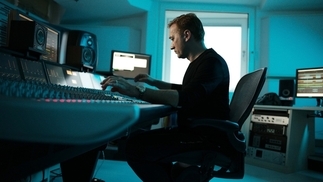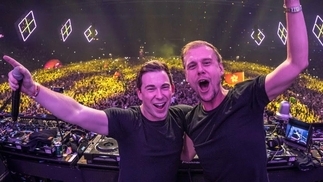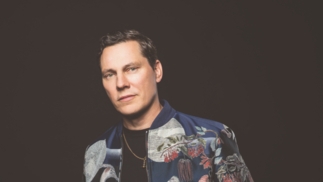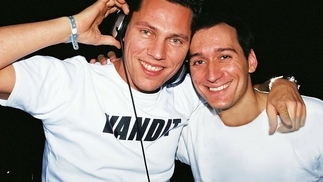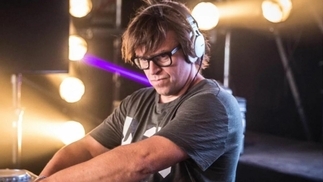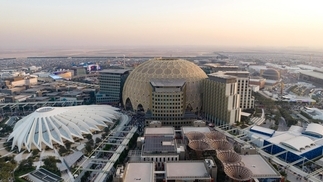TIESTO: LEGEND
Dutch DJ on his Top 100 DJs Legend Award
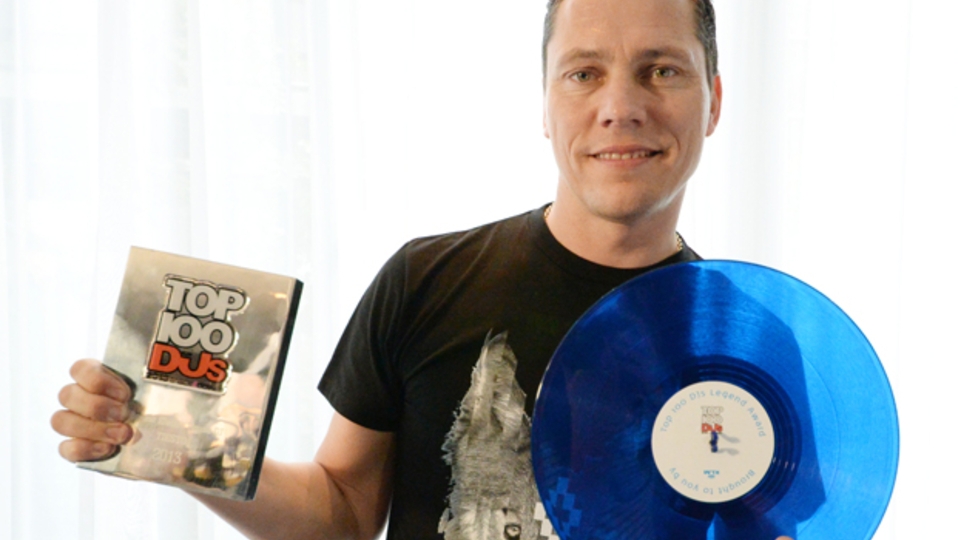
During last month’s ADE we crowned Tiesto with the Top 100 DJs Legend Award, brought to you by KLM Royal Dutch Airlines. The award was chosen by Top 100 DJs voters, who were asked to name ‘the best DJ of the last 20 years’.
DJ Mag grabbed an exclusive interview with the three-times Top 100 winner in Amsterdam during ADE...
How does it feel to have been voted the DJ Legend of the last 20 years?
“I’m incredibly honoured, it’s a great achievement I think, for me it’s a nice award to get after all these years of hard work — to get the recognition form the readers of DJ Mag and from people around the world. It’s a great honour.”
When you started out in Breda, what was it like when you first started getting international gigs?
“It was incredible, one of the first times I went on an airplane. Before I went on an airplane once a year to go to Spain for a holiday, and that was about it. It was incredible the first few times I played Gatecrasher in England, the first few times in Norway and Israel, they were just incredible gigs. I was so young and naïve — they were amazing experiences.”
What was it like when you first won the DJ Mag Top 100 DJs award in 2002?
“It was an incredible feeling, cos it went so fast for me as well back then. I went from No.24 to No.6 to No.1 in only three years, it was an amazing feeling to be the No.1 DJ in the world and everybody talked about it. It was shocking for some people as well, cos I came out of nowhere – it was really fun.”
Your protégé Hardwell has followed the same route through the poll as you. Why has it been important for you to help other DJs come through?
“I think it’s the interaction. I have the passion for music, I have passion for DJs, when I se a DJ who is really good and who’s a great producer I approach them to say ‘Let’s produce something together’ or ‘Let’s do gigs together’ or something. For me it’s important because I do it for the love of music and not for anything else – and everybody knows that. I do it for the love of music and the love of DJing.”
When you left trance in 2007-8, if you hadn’t done that would you have still been so big in the US?
“Maybe, it’s hard to say. I think I’d still be the ‘Tiesto trance guy’ but the difference is you’re not really being rewarded. Some of the old trance guys still have their following but it doesn’t feel like anybody really cares — and that’s the biggest difference. It’s nice to be in touch with the new kids who are coming up — 16-, 18-year-olds who are producing house music see me as kind of a godfather, and it’s really cool to be in touch with them. I think if I’d still been a trance DJ, I’d have been so disconnected with that sound that I wouldn’t be much inspiration for them, and vice versa.”
You’ve also been voted the Highest Electro-House DJ in the Top 100 poll this year, but you play all sorts of styles of music now, don’t you?
“Yeah, but the main chunk is electro-house, with a lot of hard drops, but I like all kinds of music so sometimes I drop one or two deep house tracks in my set or go to one or two tracks of hardstyle at the end. It’s just fun to catch people off guard a little bit, instead of just going the same route.
That’s another reason why I changed my style. Trance was always eight or nine minute tracks, it was like a six-hour journey, and this is more shorter sets of two or three hours – fast-paced, different tracks every couple of minutes. It’s a new excitement for me – it’s a different world.
When you do play tracks from other styles, how do you hear the music? Do you search Beatport or get sent things?
“I’m not on Beatport that much actually, I know a lot of people and they all send me tracks so I get hundreds of promos a week. I think every young DJ in the world has my personal email, [my inbox] is actually overflowing sometimes — it’s overwhelming. But I have an assistant who helps me as well, looking online for stuff. Also the big DJs always send me stuff in advance, and I follow a lot of DJs on Twitter and people send me stuff through direct messages that way as well. They’re coming from everywhere.
In 2004 you did the Olympics and you’ve played lots of stadium gigs and all sorts since, but do you have a dream gig that you haven’t yet fulfilled?
“I don’t really have that feeling, after the Olympics and various stadiums around the world, there aren’t that many places you can dream of in that way. For me the biggest achievement is that I totally changed my style and reinvented myself, and I still have the same passion now as I had back then. That for me is the biggest achievement in my life, it’s like a dream come true. Look at me here in 2013, I get this award and to see a guy who really loves me — and I love him as well — get to No.1 is really special as well.”
Why do you think there are so many big Dutch DJs?
“I think it’s because our country is very tough to play in. We embraced dance music in the ‘90s, it was very professional and it was on MTV and stuff, so everybody grew up with dance music here and takes it very seriously. When I released ‘Flight 643' and then 'Traffic’ in 2003, they were No.1 in Holland – it was unheard of, an instrumental track being No.1. we all grew up with it.
“But the crowds are always hard to please in Holland, they’re not always very outgoing crowds. You have to play a lot of gigs to get anywhere, so you get a lot of practice – they’re the hardest crowds to please in the world, which really helps our DJ sets as we don’t take anything for granted. If you play for English crowds or Scottish crowds or others, they are so into it that they scream all the time so you feel like you are scoring a goal every time you play a track. In Holland it’s always like 0-0.”
Is there a sense in which a lot of Dutch DJs help each other out as well?
“Yeah, everybody’s helping each other here, supporting each other a lot. Of course, there’s some beef between people, although it’s more like healthy competition — everybody wants to be a star. But there are a lot of young guys, like Hardwell has a couple of young guys he’s supported a lot – Dannic and Dyro — and it really helps their careers as well, so there’s definitely a big group of people supporting each other.
Finally, what advice have you given to Hardwell over the years, and what advice would you give to new young DJs just starting out?
“Well, I haven’t really given Hardwell that much advice. We have the same passion, and I think when we were on the road together that’s when he saw how I was DJing and the passion I have for it. That was an inspiration for him, I think, and in general for young DJs I always say follow your heart. Don’t make anything you don’t want to make. Don’t try to be someone else – try to be yourself and try to innovate. All the superstar DJs in the world came with something new, they didn’t copy other DJs and still became superstars themselves. All they guys made their own special way and their own special sound — that’s why they’re at the top.”
